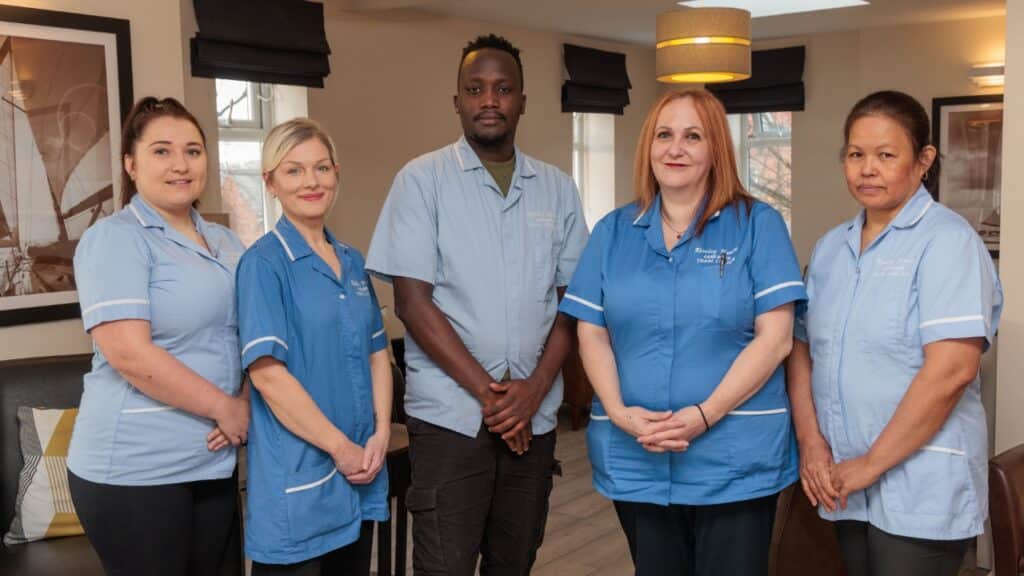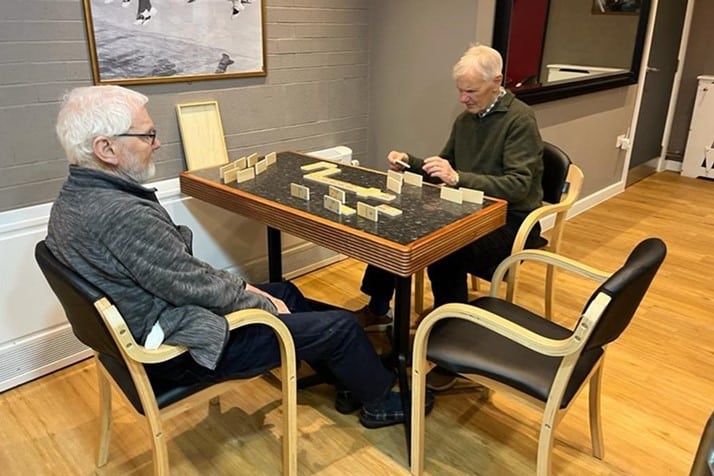
The Vital Role of a Care Home Activities Coordinator.
In residential care homes across the United Kingdom, the role of a care home activities coordinator has become increasingly crucial in enhancing the quality of life for elderly residents. These dedicated professionals are tasked with creating and implementing engaging programmes that cater to the diverse needs and interests of care home residents. But what exactly does a care home activities coordinator do, and why is their role so vital in modern residential care settings?
Key Takeaways
- Understanding the role of a care home activities coordinator and their essential responsibilities.
- The significant impact of activities on residents’ physical and mental well-being.
- How activities create a sense of community through social interaction and cultural events.
- The importance of personalising activities to meet individual needs and abilities.
- The crucial collaboration between care home activities coordinators and healthcare professionals.
Understanding the Role of a Care Home Activities Coordinator
Key Responsibilities
A care home activities coordinator is responsible for planning, organising, and facilitating a wide range of activities for residents. These activities are designed to promote physical, mental, and emotional well-being, as well as to foster social connections among residents. The coordinator must be creative, empathetic, and adaptable, as they work to meet the varied needs and preferences of each individual in their care.
Skills and Qualifications
To excel in this role, a care home activities coordinator typically needs a combination of formal qualifications and personal attributes. Many coordinators hold qualifications in health and social care, leisure management, or related fields. Equally important are soft skills such as excellent communication, patience, and the ability to motivate and engage others. A genuine passion for working with elderly individuals is paramount.
The Impact of Activities on Residents’ Well-being
Physical Benefits
One of the primary focuses of a care home activities coordinator is to promote physical health among residents. Through carefully planned exercise programmes, such as gentle yoga, chair-based exercises, or walking groups, coordinators help maintain and improve residents’ mobility, strength, and overall physical health. These activities are tailored to accommodate various levels of ability, ensuring that all residents can participate and benefit.
Mental Stimulation
Care home activities coordinators play a crucial role in keeping residents’ minds active and engaged. They organise cognitive activities like quizzes, puzzles, and memory games, which are essential for maintaining mental acuity and potentially slowing cognitive decline. Additionally, they may arrange educational workshops or discussion groups on various topics, encouraging lifelong learning and intellectual stimulation.
Creating a Sense of Community
Social Interaction
A key aspect of a care home activities coordinator’s role is fostering social connections among residents. By organising group activities, communal meals, and social events, coordinators create opportunities for residents to interact, form friendships, and combat feelings of isolation. These social interactions are vital for emotional well-being and can significantly improve the overall quality of life for care home residents.
Cultural and Celebratory Events
Care home activities coordinators are often responsible for planning and executing cultural celebrations and special events. These might include holiday parties, birthday celebrations, or events that honour residents’ diverse cultural backgrounds. Such activities not only provide enjoyment but also help maintain a sense of normalcy and connection to traditions, which is particularly important for elderly individuals in care settings.
Personalising Activities to Individual Needs
Assessing Residents’ Interests and Abilities
A skilled care home activities coordinator takes the time to understand each resident’s unique interests, abilities, and limitations. This involves conducting assessments, speaking with residents and their families, and observing participation in various activities. By gathering this information, coordinators can tailor activities to suit individual preferences, ensuring that each resident has access to meaningful and enjoyable pursuits.
Adapting Activities for Different Needs
Care home activities coordinators must be adept at modifying activities to accommodate residents with varying physical and cognitive abilities. This might involve simplifying instructions, providing additional support, or offering alternative ways to participate. For example, a resident with limited mobility might be encouraged to participate in a gardening activity by helping to pot plants from a seated position.
Collaborating with Healthcare Professionals
Integrating Activities with Care Plans
An effective care home activities coordinator works closely with other healthcare professionals to ensure that activities align with and support residents’ overall care plans. This collaboration might involve consulting with physiotherapists to incorporate specific exercises, or working with occupational therapists to include activities that support daily living skills. By integrating activities with broader care objectives, coordinators contribute to a holistic approach to resident well-being.
Monitoring and Reporting Progress
Care home activities coordinators play a vital role in monitoring residents’ participation and progress in various activities. They keep detailed records and provide regular updates to the care team, which can be invaluable for assessing changes in a resident’s physical or cognitive status. This information can help inform care decisions and ensure that activities continue to meet residents’ evolving needs.
For more information, check out our carehome.co.uk reviews.
Conclusion
The role of a care home activities coordinator is multifaceted and integral to the quality of life in residential care settings. These professionals not only plan and implement engaging activities but also contribute significantly to the physical, mental, and emotional well-being of residents. Through their efforts, care home activities coordinators create vibrant, stimulating environments that promote active aging, social connection, and personal fulfilment. As the importance of person-centred care continues to be recognised, the role of the care home activities coordinator will undoubtedly remain crucial in ensuring that residential care homes are not just places to live, but places to thrive.
Care Home Activities
We offer a diverse range of social activities and entertainment options, ensuring that there’s always something exciting happening to uplift the spirits of our residents.
Frequently Asked Questions
What qualifications are required to become a care home activities coordinator?
To become a care home activities coordinator, formal qualifications are not always mandatory, but they can be beneficial. Many employers prefer candidates with a Level 2 or 3 Diploma in Health and Social Care or a related field. Some coordinators have qualifications in leisure management, occupational therapy, or activity provision.
Additionally, experience in working with older adults or in care settings is highly valued. Soft skills such as empathy, creativity, and excellent communication are essential. Many care homes also provide on-the-job training and encourage coordinators to pursue further qualifications, such as those offered by NAPA (National Activity Providers Association).
How do activities coordinators cater to residents with varying levels of mobility?
Care home activities coordinators employ various strategies to ensure activities are accessible to residents with different mobility levels:
- Adapting activities: They modify exercises and games to be performed from a seated position or with limited movement.
- Providing assistive devices: Using specialised equipment to help residents participate more fully.
- Offering a range of activities: Ensuring a mix of activities that cater to different mobility levels, from chair-based exercises to gentle walking groups.
- One-on-one sessions: For residents with very limited mobility, coordinators may provide individual activities at the bedside.
- Collaborating with physiotherapists: To design safe and beneficial activities for residents with mobility challenges.
What types of activities are most beneficial for cognitive stimulation in care homes?
Activities that provide cognitive stimulation are crucial for maintaining mental acuity in care home residents. Some of the most beneficial include:
- Puzzles and brain teasers: Crosswords, Sudoku, and jigsaw puzzles.
- Memory games: Card matching games or reminiscence activities.
- Quizzes and trivia: On various topics to engage different interests and knowledge bases.
- Arts and crafts: Painting, drawing, or crafting can stimulate creativity and cognitive function.
- Music-based activities: Singing, playing instruments, or music appreciation sessions.
- Reading groups: Discussing books or articles to encourage critical thinking.
- Learning new skills: Such as a new language or technology use.
- Interactive games: Board games or adapted video games that require strategy and decision-making.
How can family members support the work of care home activities coordinators?
Family members can play a vital role in supporting care home activities coordinators:
- Sharing information: Providing details about the resident’s interests, hobbies, and life history.
- Participating in activities: Joining in during visits to encourage their loved one’s engagement.
- Providing resources: Bringing in items for personalised activities or hobbies.
- Offering feedback: Sharing observations about which activities their loved one enjoys most.
- Volunteering: Assisting with larger events or outings.
- Maintaining communication: Keeping in regular contact with the coordinator to stay informed about upcoming activities and their loved one’s participation.
- Supporting continuity: Continuing similar activities during home visits to maintain engagement.
What role does technology play in modern care home activities programmes?
Technology is increasingly important in care home activities programmes:
- Digital games: Tablet-based games and apps designed for cognitive stimulation and entertainment.
- Virtual reality: Offering immersive experiences for residents with limited mobility.
- Video calling: Facilitating connections with family and friends who can’t visit in person.
- Smart speakers: Providing music, audiobooks, and information on demand.
- Interactive screens: For group activities like quizzes or virtual tours.
- Adaptive technology: Enabling residents with physical limitations to participate in various activities.
- Online learning platforms: Offering courses and workshops for continuous learning.
- Social media: Sharing activity updates with families and the wider community.
- Fitness technology: Using wearable devices or specialised equipment to track and encourage physical activity.
These technological tools not only enhance the variety of activities available but also help to personalise experiences and maintain connections with the wider world.
